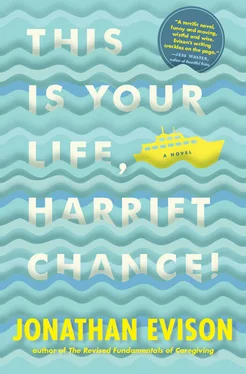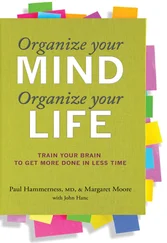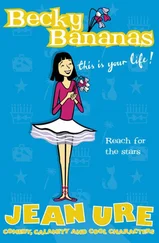Now, now, not so fast, Harriet. We’ve still got business on Charlie’s boat. Isn’t it about time we revisit the scene of the. . what shall we call it? The crime? That’s what the proper authorities would call it — the proper authorities not being your parents, of course. How about “the event”? “Event” makes it sound singular. Though it was not singular, was it, Harriet? It was multiple. Serial might be a better word choice. But let’s not quibble.
Let’s just call it “the First Time.”
It’s summer, but out here on the open water, the wind cuts right through your chubby limbs. You’ve got goose flesh. The chill is thrilling. Charlie guns the engine, skittering over the chop, the boat leaping dolphinlike out of the water, the hull thrashing against the surface upon its rejoinder.
Look at you, Harriet, wide-eyed and grinning as your rump bounces up and down, half a foot off the padded berth, the horizon jumping right along with it. And Charlie is grinning, too, nay, Charlie is smiling like a madman. You can practically hear the wind whistling though his teeth.
It’s not until Uncle Charlie stops the boat and leaves it to bob on the water like a cork that the chill is discomforting. The fact that he stopped the boat at all is discomforting in its own right. The craft is, after all, built for speed.
When Charlie sees you start to shiver, he comes to you, surefooted across the slippery deck of the bobbing boat and helps you out of your wet life preserver. Deftly, he begins to unclasp the—
Okay, fine, objection withheld. No need to dwell on the odious details, not for our purpose. This isn’t hypnotherapy, Harriet, this is your life, an unsentimental accounting of it. You get to be judge, jury, and arbiter. You get to decide what’s admissible. So strike the stuff about the offending fingers, the coarse stubble against your face, the whispered assurances. For the record, let’s just say that once Charlie unfastens the straps, your life preserver, like your parents, ceases to protect you. And you, Harriet, you cease protecting yourself.
Yes, you were only nine years old, and no, it wasn’t consensual, not by the letter of the law, anyway. Well, not by any letter, actually. But still, let’s talk about your complicity in the affair. You could have resisted. Sure, you were in open water with no one around for a half mile. Still, you might have put up some kind of fuss. Sound travels a long ways across water. Surely, you must have learned that somewhere along the line by third grade. Think about it: Charlie was never about brute force, not in the courtroom or anywhere else. Charlie was about finesse, remember? Persuasion. He never threatened you. Quite the contrary. You had an unspoken understanding all those years.
Not to let Charlie off of the hook, but in hindsight, a little kicking and screaming might have saved you some trouble. Any kind of resistance at all might’ve done the trick. Even a simple no would have bought you some time. Rest assured, the other you would have put up a fight.
But you always were a quiet child, Harriet. Too quiet. And let’s face it, Charlie wasn’t used to taking no for an answer.
Now that we’re getting right down to the nitty-gritty, let’s give voice, at long last, to that unspoken understanding you shared with Uncle Charlie, from the First Time, to hallway gropings, to the office desk.
If you can name it, Harriet, maybe you can tame it.
You owed Charlie Fitzsimmons, didn’t you? You owed him your life. And he took it from you, didn’t he? It all began on that motorboat, that’s when you started paying, that’s where your path diverged from the other you. Bit by bit, he stole your confidence, little by little, he widened the gap between you and the you you might have become. He took your newly developed voice and stripped you of the power to tell your own story. He exacted his debt in self-esteem. You paid silently in shame, Harriet, in unfulfilled potential, in unexplored possibility. And you’re still paying, all these years later.
And somehow, in spite of it all, Charlie Fitzsimmons never lost your respect, exercising that same finesse and expert persuasion that made him such a formidable opponent in the courtroom and such a hero at the dinner table. You can’t fault yourself for being bested by the best, Harriet. You weren’t even in fourth grade.
It ought to seem obvious. Lordy, it ought to go without saying, but somehow, some way, inconceivably, through the warped lens of your wounded self-image, the verdict has been lost on you all these years:
You are not guilty, Harriet. At least of this offense.
August 23, 2015 (HARRIET AT SEVENTY-EIGHT)
Harriet is awakened by the squalling of the public address system, signaling the Zuiderdam ’s imminent arrival in Glacier Bay. Having been up half the night with Caroline, Harriet feels ten years older as she drags herself out of bed to find her daughter on the love seat, flipping absently through Mariner magazine.
“Morning, Mom.”
“Good morning, dear.”
Indeed, it is a good morning. It’s overcast, which bodes well. The pamphlets say that the glaciers look their best beneath gray skies.
Upon Caroline’s suggestion, they order breakfast from room service, and Wayan soon wheels in their omelets, with a sly wink for Harriet.
“No crab today, eh, Ms. Chance?”
“Good day, Wayan,” she says.
The boy smiles. Releasing the cart, he fashions his hands into pincers and snaps them a few times for Harriet’s benefit.
“Little smart-ass,” she says, upon his departure.
“I don’t follow,” says Caroline.
“It’s a long story. And not one I’m proud of.”
They eat side by side on the love seat with the curtains open.
“So, look, I know I’ve said some crummy things about Dad. But would it be okay if I go with you?”
“Of course, dear. He’d want you there.”
Everything feels different after last night. Having cleared the air after all these years, Harriet feels lighter. Her lone regret, aside from the fact that Skip isn’t here so she can wring his neck, is that she didn’t clear the air thirty years ago.
With Caroline by her side and a chill breeze thundering past her ears, Harriet clutches the yogurt container firmly to her chest. Everything feels wrong for the occasion. It isn’t just the indifference of this eternal landscape forged by ice. She failed to consider the crowds, the incessant click of camera shutters, the oohing and aahing, the children darting about, squealing with laughter, horning in on her real estate, and stepping on her toes.
Harriet clutches the ashes still closer as she stares straight ahead into the wind, her eyes fixed on the glacier that is glowing eerily blue against the white backdrop. Beyond its fissured facade, the glacier runs a smooth ribbon of ice into the mountains, through valleys carved violently and patiently over eons as far as the eye can see. Everything about this place — its stillness and scope and magnitude — seems to suggest permanence. But in fifty years, it will be gone.
“Remember those Mentholatum cough drops?” says a voice, startling Harriet from her reverie. “The ones I used to like?”
Harriet turns. There, beside her, in Caroline’s place, leaning against the rail in his blue windbreaker, stands Bernard. At ninety, he cuts a stooped figure, hatless, and gaunter than ever. His hair has thinned, now, only a few windblown wisps of white remaining. The hair growing out of his ears, meanwhile, has thickened.
Suddenly the deck all around them is deserted. The children, the camera snappers, have all disappeared without a trace. Caroline is nowhere to be seen. Only Harriet and Bernard remain amid the sprawl of mountain and ice.
Читать дальше












